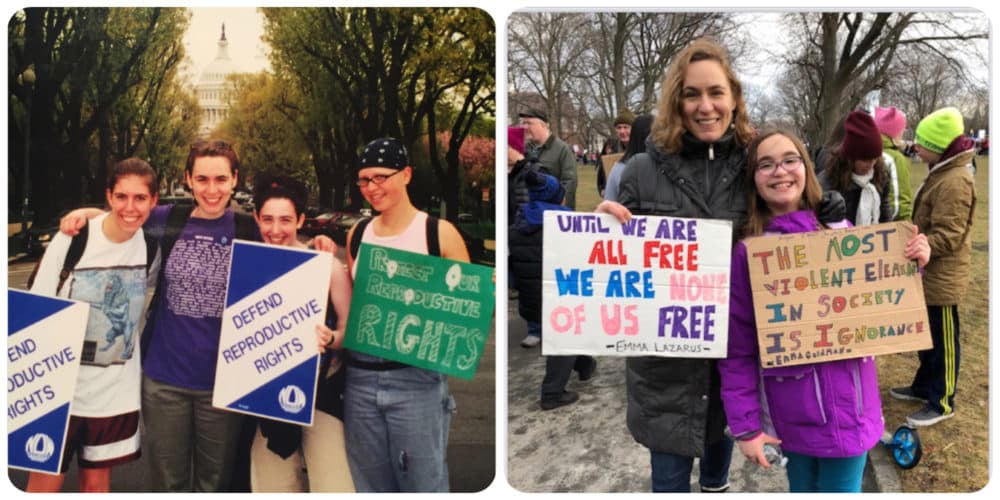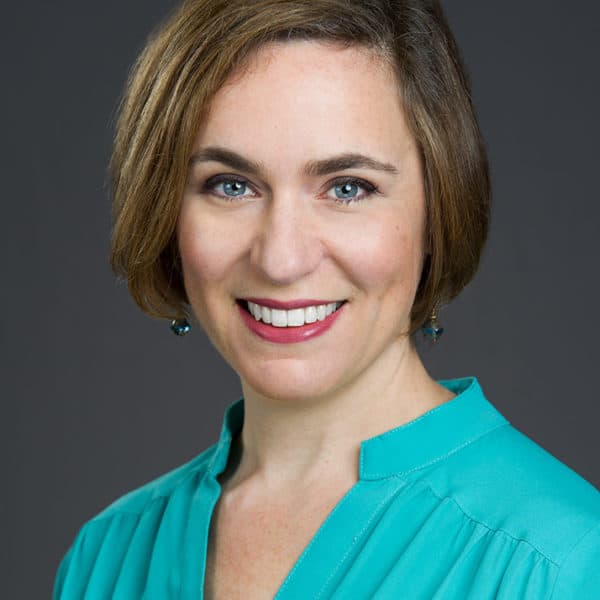Advertisement
Commentary
Like Roe, I was born in 1973 — and I'm here to keep fighting

My college roommate called, her voice filled with tears and despair. “I know I shouldn’t be surprised, but I can’t believe this is actually happening. How did we fail to stop it?”
It was the third such call I received, from friends from all over the country who were stunned and horrified when a leaked draft opinion overturning Roe v. Wade came out in May. I got more calls last Friday, when the finality of the decision knocked the wind out of us.
“I can’t think about anything else,” they said.
“I’m devastated.”
“I’m incandescent with rage.”
“It feels so personal.”
“Of course it does,” I replied. “We’ve just lost our birthright.”
We were born in 1973, the same year the Supreme Court decided Roe v. Wade. We are the first generation of American women for whom abortion has always been explicitly legal. The stories of back-alley abortions, of women blindfolded and assaulted by purported doctors, of deaths by self-induced abortion, of abortion speak outs and arrests — these were history, our mothers’ activism, before our time.

That’s not to say we took abortion rights for granted. In fact, we’ve spent all of our adult lives trying to protect that right, and the larger field of reproductive justice, from the forces that began to chip away at it soon after Roe. I went to my first reproductive rights rally at age 17. At 19, my friends and I became clinic escorts, accompanying patients to the entrance of our local women’s health clinic and protecting them from the shouts and gory posters of the anti-abortion protestors who ringed the parking lot’s perimeter.
At 21, I worked in the clinic’s abortion recovery room, feeling that my advocacy for reproductive rights should be grounded in greater knowledge of the people who both worked within and were served by the movement. At 30, I earned my doctorate with a dissertation about the American women’s health movement, exploring the demand for “control over our own bodies” in historical context. And I can mark time by the changing haircuts and T-shirts in photos of the rallies and protests my friends and I attended in every decade.
Advertisement
That activism reflected and shaped our identities as women and as feminists. Our generation holds a particular posture, both entitled and defensive. We were raised to believe that our mothers had fought feminist battles so that we could do anything, be anything. As we came of age, we confronted the limitations of that dream: discrimination may have been no longer legal, but sexism was alive and well, playing out in different ways depending on race, class, sexual orientation, immigration status, ability. Over the years, we realized with increasing clarity and urgency the incompleteness of the feminist revolution and the precarity of its wins. Still, we did not expect the clock to roll back this far.
Now, at middle age -- already a time of reckoning and fear of decline -- we are witnessing the collapse of a pillar of our feminism despite our best efforts to shore it up.
Now, at middle age — already a time of reckoning and fear of decline — we are witnessing the collapse of a pillar of our feminism despite our best efforts to shore it up. The moment feels overdetermined. Like Roe, we’re of 1973 vintage. We’re nearing fifty and wondering if our power is going the way of our fertility and skin elasticity. Ostensibly in the prime of our careers, we’re often depleted by the many “sandwich generation” demands that fall on us. And we’re noting (with a mix of horror and occasional surprising pleasure) that we’re increasingly invisible as middle-aged women. We will not be the ones most impacted by the end of Roe, but we feel its heavy responsibility and the painful question: if we failed to hold onto Roe, what can we do now?
For weeks, the eerily accurate algorithms of social media have been trying to sell me a sweatshirt that says “Pro Roe 1973.” Each time the ad crosses my screen, I am reminded that this fight is coded in my birth. I call my college roommate back and share what I’ve realized.
“It is the fight that is our birthright, not Roe,” I tell her.
Our mothers were wrong: we were not born to be free of the battles but to learn from the generations of activists who preceded us, to build on their successes and failures, to teach the next generation that they have a legacy to carry on. Like middle age itself, this is an inflection point, not an end.
We will not give up. We are incandescent — with rage, yes, and also with wisdom and determination, and we will light a path forward.
